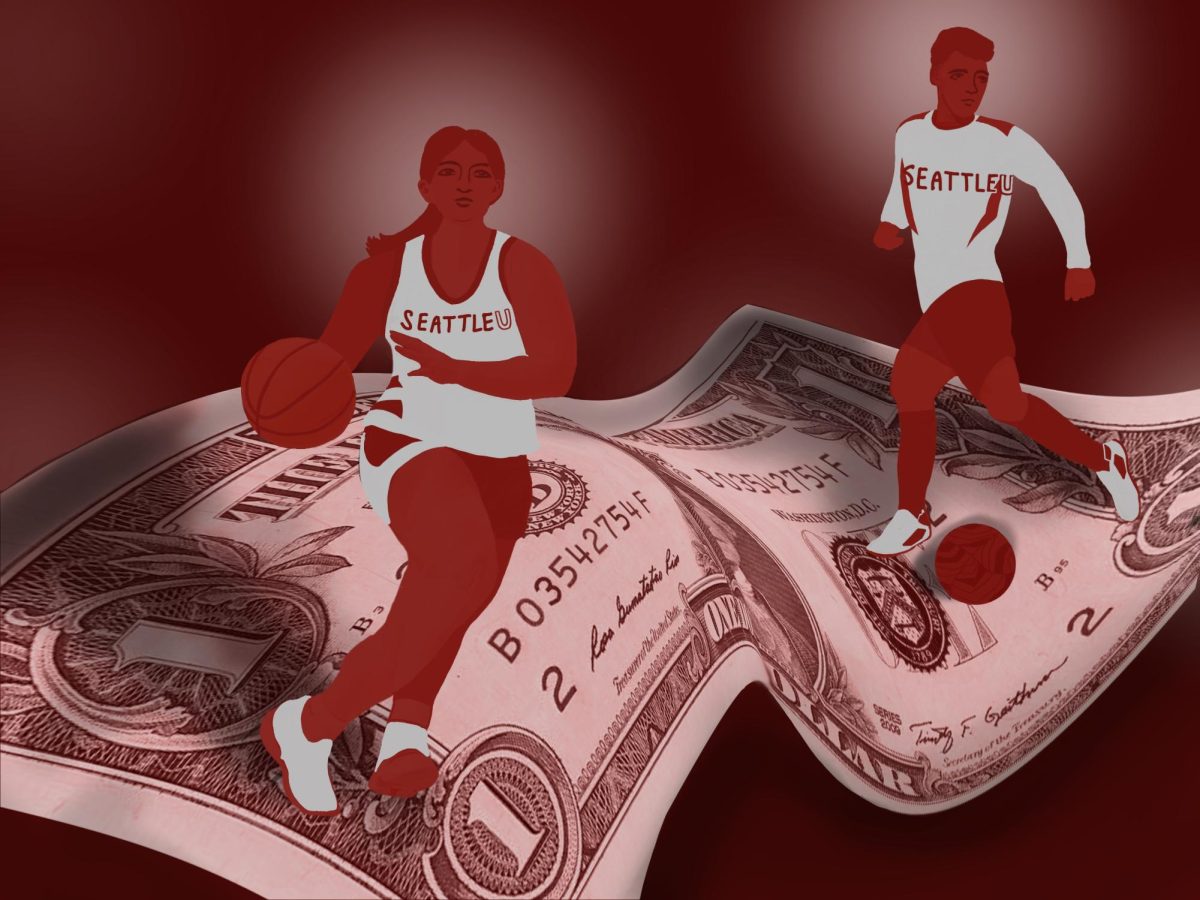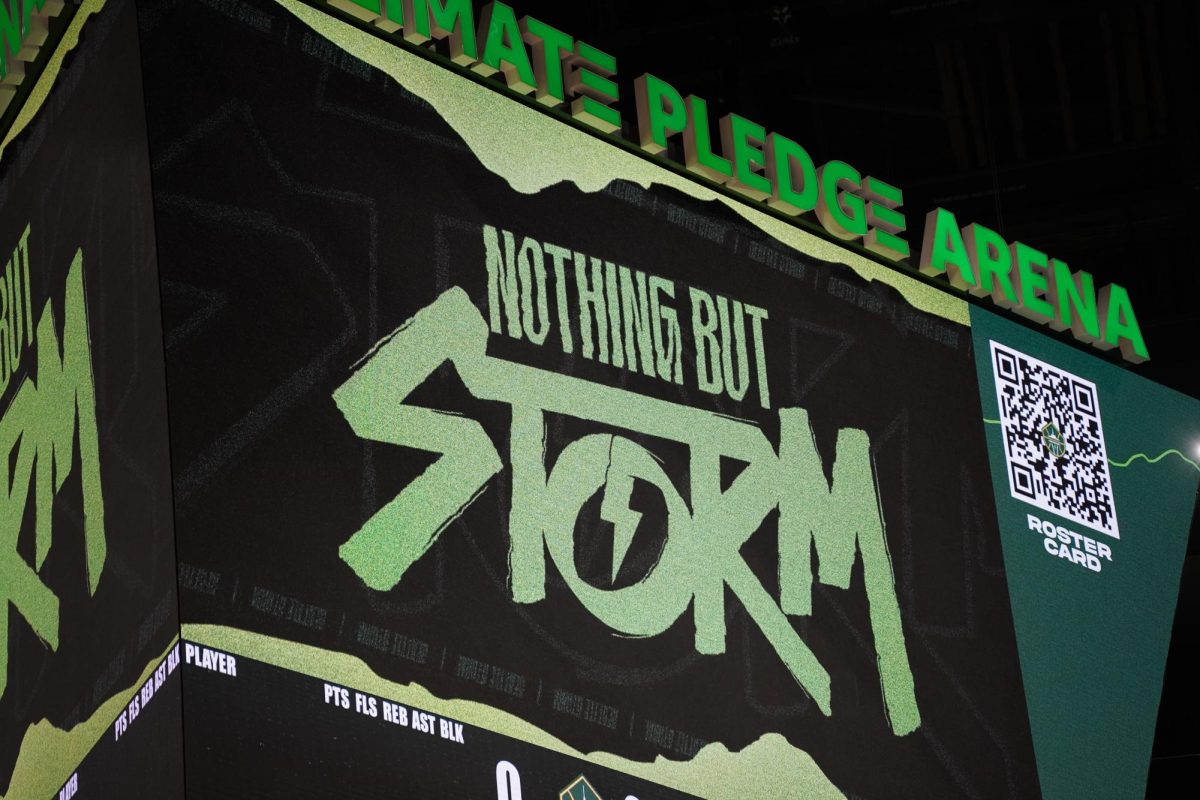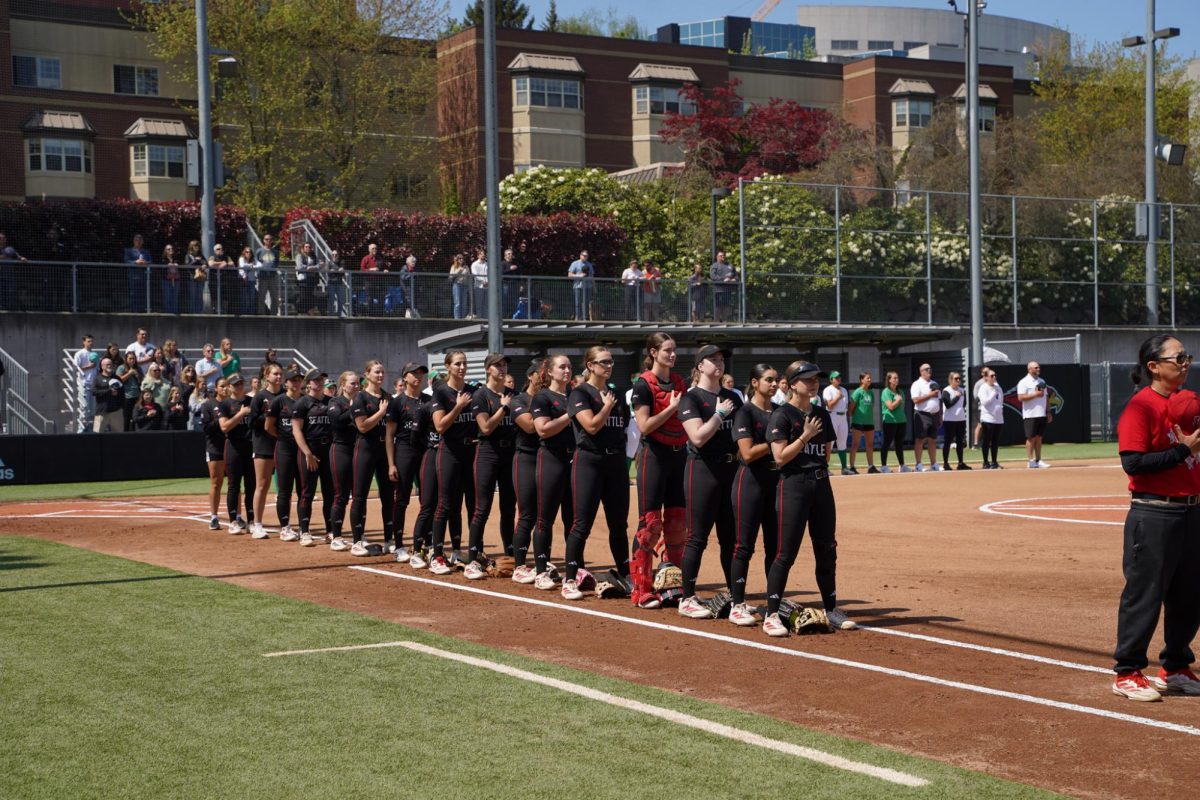There’s been enough change in the world of collegiate Name, Image, Likeness (NIL) since The Spectator last reported on the emerging landscape in 2024 to fill a small book. Since then, a class-action antitrust suit, referred to as House v. NCAA, is set to bring forward sweeping changes set to take effect next year.
One major change is directed toward booster-backed collectives, who were interpreting vague and unenforceable regulations from the NCAA to form contracts that allowed them to pay players directly. Going forward these contracts are set to be regulated further than they were in the early days of NIL.
The emergent question is how Seattle University will reconcile NCAA policy, which is beginning to look like a professional league, with its educational values and their own NIL SOAR policy—all while still remaining competitive.
Despite the university’s smaller size next to larger schools, numerous Seattle U athletes across various sports have begun engaging in NIL sponsorships and brand deals to varying degrees.
Amberlee Espinoza, a second-year biology major and athlete for the Seattle U women’s rowing team, found an NIL deal through Postgame, a third-party app that facilitates NIL opportunities for collegiate athletes.
“I work with Adidas as my first and only NIL deal so far. Just a lot of posting on Instagram and highlighting all their promotions that are going on,” Espinoza said.
In exchange for promoting Adidas, Espinoza was given a unique Adidas link that earns her a small commission when used. Despite having an Instagram following under one thousand, Espinoza has been able to monetize her status as a student athlete.
Espinoza’s entrepreneurial development is one of the goals that the Seattle U athletic administration have for the university’s NIL program.
“We regard the process of NIL as an invitation to encourage professional formation. For most Division I student athletes, NIL opportunities result from their initiative, ingenuity and follow-through. These are valuable transferable skills for any workplace,” Eric Guerra, associate director of athletics and the point person for NIL compliance at Seattle U, said.
Guerra put emphasis on prioritizing the education and professional development of the athlete, all while maintaining a spirit of amateurism. The NIL activity he spoke of revolved mainly around deals with local businesses and exchanges that involved discounted or free products instead of money.
Sebastian Lopez and Hunter Komine, both third-year finance majors and players on the Seattle U men’s baseball team, have each had a range of experiences within NIL.
“My first NIL was Liquid IV. I had a couple buddies that were doing that, so I just reached out to them on Instagram and got that going for, like, a year,” Lopez said.
In the past, Lopez had deals with a batting glove company, a grooming company, and secured another the day of our interview with a honey company that he was made aware of through a coach.
Komine has done over a dozen NIL deals with brands ranging from Gillette to SLOWPLAY, a poker company. One of his biggest deals, with Bruce Bolt Batting Gloves, has netted him thousands.
“You can type my last name on their website. You’ll get a discount. I don’t promote it at all, but I make a lot of money from it. I only make 10% from them, so if I made $5,300 last year, I made them $53,000 using that code.”
Komine often reaches out to brands himself, advertising his skills in content creation and then reporting his deals back to the university.
“Maybe it’s a cheaper alternative. Like, they go through me, pay me, you know, three, four hundred bucks and then a bunch of free stuff, instead of hiring, like, a professional social media or professional content creator,” Komine said.
The variety of ways in which Komine and Lopez have secured deals demonstrates the blurry line between student-athletes and private citizen entrepreneurs. Under the new rules, this does not violate NCAA guidelines, but it doesn’t neatly align with the university’s stated goals and policy surrounding NIL.
Guerra reiterated the need for clearer boundaries that would protect athletes’ identities as students first. But, at the end of the day, schools want to be competitive, particularly when they’ve just joined a new conference. With NIL packages coming from both third-party collectives and deals the athletes make themselves, the space appears rife with opportunity for exploitation without the proper tools for oversight.








